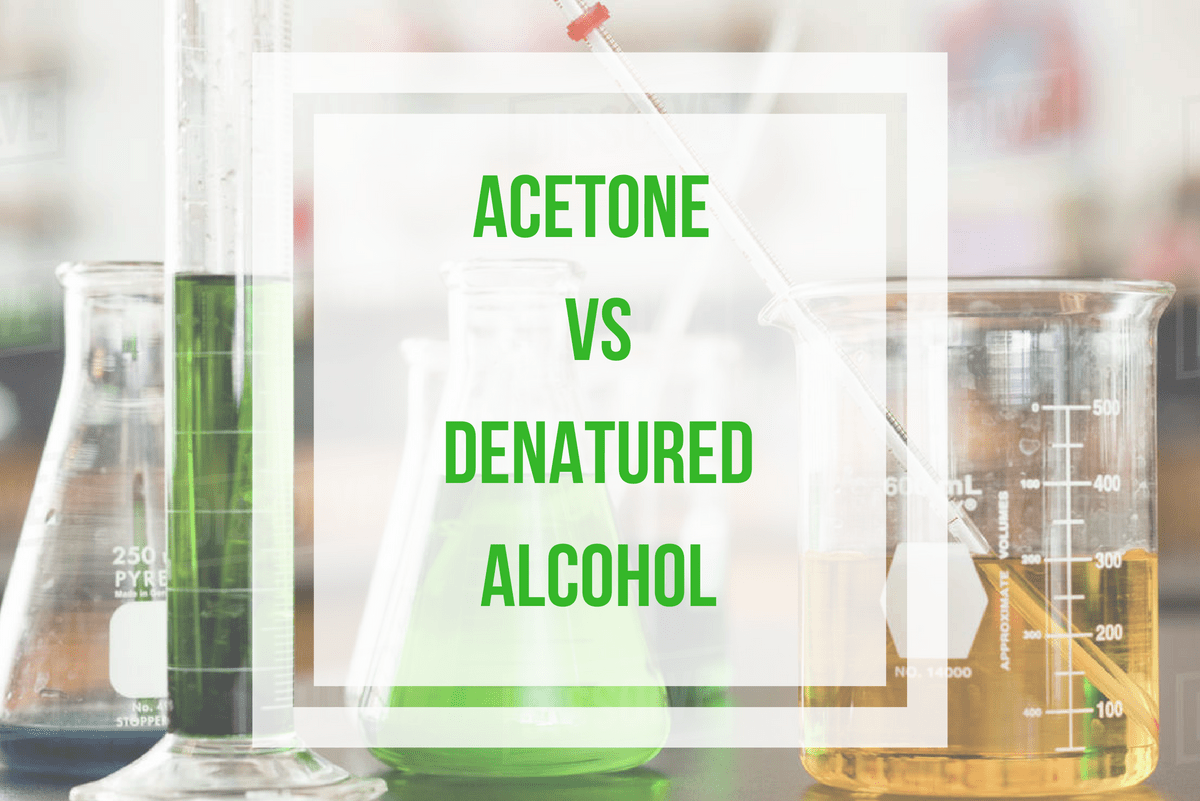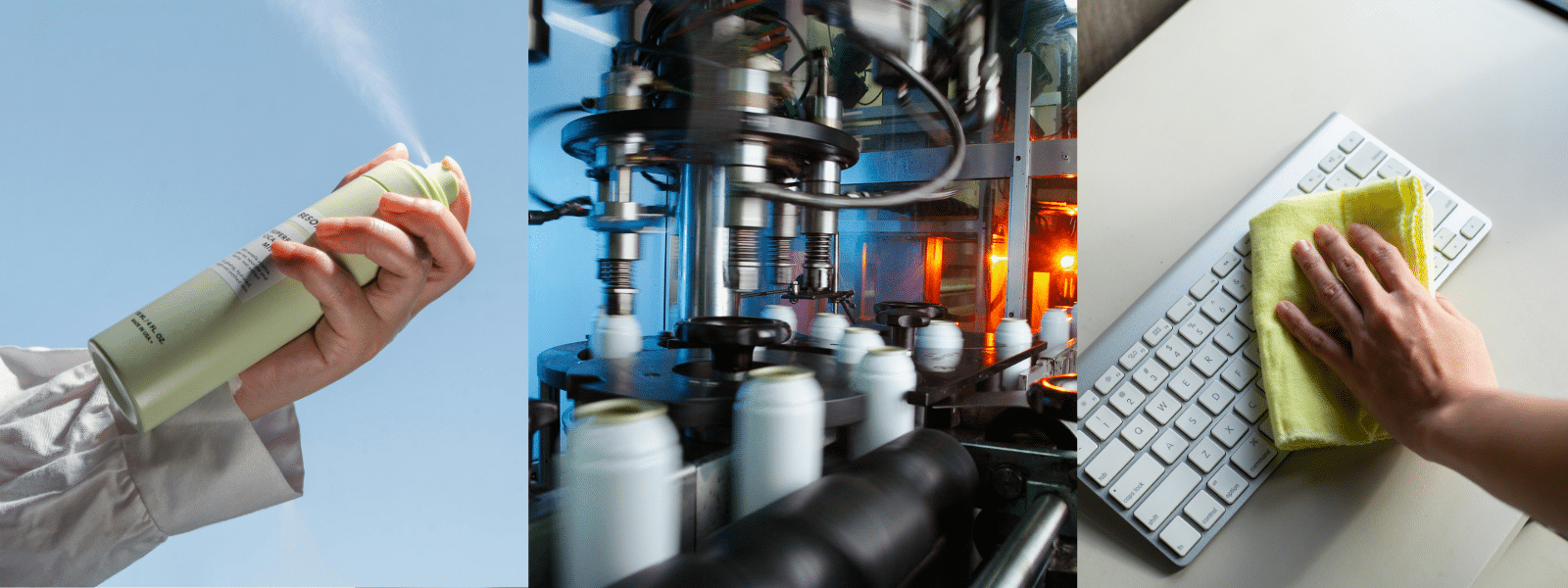Acetone and Denatured alcohol have two characteristics in common with each other despite the fact that one chemical compound is a solvent and the other being a type of alcohol. Acetone and Denatured Alcohol share the ability to break down substances and can be used as thinners. Although Acetone and Denatured Alcohol share some similarities, they also have some differences. Find out which chemical compound better suits your needs for your specific industry.
What is Acetone?
Acetone is one of the oldest chemical compounds that is widely used for industrial purposes and is even made in our own bodies. Acetone occurs in nature as a product of the breakdown of fat in our bodies, in plants, trees, forest fires, and more. It is present in vehicle exhaust, tobacco smoke, and landfill sites. Industrial processes contribute more acetone to the environment than natural processes do. Acetone is a colorless, organic solvent that has a distinct mild smell that is relatively low in cost and is applied and used in the following industries:
- Production of certain plastics
- Pharmaceuticals
- Lacquer application tools
- Paper Preparation
- Cleaning epoxy application tools
- Cleaning oil-based paint
- Varnish or polyurethane application tools
- Painting tools with dried coatings
- New wood before finishing
- Fiberglass
- Degreaser for bare metals, painted metal parts, and thinning fiberglass resin
- Helps with the removal of adhesives and vinyl resins
What is Denatured Alcohol?
Denatured Alcohol, sometimes referred to as methylated spirits, is a greener alternative for your cleaning needs. Denatured Alcohol is ethanol that is unfit for human consumption due to denaturants being added to it that make it poisonous, which is why humans are not able to consume denatured alcohol. Denatured Alcohol is a non-toxic, clear, colorless liquid with a pleasant odor that can dissolve other chemical substances. Denatured Alcohol is a versatile solvent that can be mixed readily with water and many organic liquids and solvents to make chemical compounds. It is intended for fuel or solvent usage and can be applied and used in the following industries:
- Lacquers
- Plastics
- Plasticizers
- Rubber
- Rubber accelerators
- Aerosols
- Cleaning Preparations
- Polishes
- Surface coatings
- Dyes
- Inks
- Adhesives
- Antifreeze
- Petrol additives/substitutes
Interested in Acetone or Denatured Alcohol?
To find out whether acetone or denatured alcohol is the best option for you and your needs, please call us today at (800) 563-1305, or send us an email through our contact form. For over 25 years, we’ve provided stock and custom cleaners that have an amazing efficacy. We look forward to hearing from you and seeing how we can help with your thinning and/or cleaning needs!
















